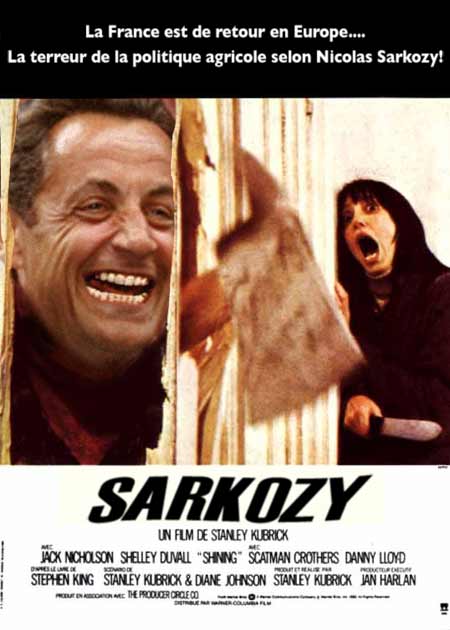Two new studies published in Science magazine add to the mounting evidence that most biofuels are actually increasing carbon emissions, rather than reducing them. The current boom in biofuels in the EU and US is entirely driven by government policies and subsidies, which are invariably presented as a way of addressing climate change by reducing carbon emissions.
Dutch farmers get most subsidy per hectare
One proposal in the Commission’s health check communication of 20 November 2007 is that the member states which still allocate farm subsidies on the basis of historic entitlements should move to the area average system in which allocations are the same across all hectares in a given geographical region. But it looks as though this change will be optional, according to a speech made by Commissioner Fischer Boel in Ireland on 29 January. Moreover, the flat rate system does nothing to address the striking inequalities between member states, which shows that on average, Dutch farmers get €1299 per hectare, while Portuguese farmers get just €88.… Read the rest
Commission drops plan to reduce 'fat cat' farm subsidies
Top Commission officials have confirmed that in the face of opposition from four member states (Czech Republic, Germany, Slovakia and the UK) as well as many farm unions, Mariann Fischer Boel has dropped plans to cut the very largest farm subsidy payments by 45 per cent. The plan, which would have affected an estimated 23,000 farms that receive in excess of €300,000 a year, a list which is dominated by Europe’s wealthiest landowners such as the Duke of Westminster, Prince Albert of Monaco and the Crown Prince of Liechtenstein.
Commission drops plan to reduce ‘fat cat’ farm subsidies
Top Commission officials have confirmed that in the face of opposition from four member states (Czech Republic, Germany, Slovakia and the UK) as well as many farm unions, Mariann Fischer Boel has dropped plans to cut the very largest farm subsidy payments by 45 per cent. The plan, which would have affected an estimated 23,000 farms that receive in excess of €300,000 a year, a list which is dominated by Europe’s wealthiest landowners such as the Duke of Westminster, Prince Albert of Monaco and the Crown Prince of Liechtenstein.
Sarko: "La France est de retour en Europe"
Sarko: “La France est de retour en Europe”
Food security: woolly thinking and self defeating solutions
As Jack Thurston has well exposed in his recent entry, the “food security” argument seems to be the new rally call for those trying to justify continuation of untargetted payments to farmers, or even a return to production support (albeit disguised as “risk management”, “income insurance” and the like). At a recent debate I was struck by the fact that the “food security” threat, and hence the need to support further agriculture intensification was almost universally endorsed, including by “CAP reformers”. While Jack has given a powerful argument for refuting the neo-Malthusian scaremongering about looming food shortage, you don’t actually need to believe in a future of plenty to call the bluff on this line of reasoning.… Read the rest
WTO Agricultural Chair presents new modalities paper
The Chair of the agricultural negotiations at the WTO, Crawford Falconer, released his latest version of the draft modalities for an agricultural agreement on Friday last 8 February. This is the culmination of a series of intensive meetings since early January among a representative group of some 37 WTO members. Although there are still many square brackets in the text, representing areas where final political agreement will only be reached in the context of an overall trade-off against concessions in the non-agricultural market access (NAMA) negotiations, the text provides greater clarity on many of the more contentious issues that were outstanding in the previous incarnation of these draft modalities last July.… Read the rest
European Parliament takes aim at CAP direct payments
A new report commissioned by the Budget Committee of the European Parliament makes interesting reading. The report, written by Jorge Núñez Ferrer (a former Commission fonctionnaire) and Eleni A. Kaditi, both of the Centre for European Policy Studies in Brussels, aims to asses whether the CAP provides ‘added value’. Núñez Ferrer and Kaditi define this as whether “the benefits outweigh the costs, not only of implementing the policy, but also the costs created in other areas.” The authors don’t pull their punches, particularly when it comes to direct payments which, costing some €30 billion a year, are by far the biggest ticket item in the CAP.… Read the rest
Churchill, Malthus, Brown, Barnier and agricultural protectionism
Earlier this week, BBC Radio 4 broadcast Churchill Confidential, a dramatisation of British cabinet meetings chaired by Prime Minister Winston Churchill, records of which have only recently been released into the public domain. In this week’s episode, looking at Churchill’s second term of office (1951-55), we get an overview of the pressing issues of state at that time: the impending conflict with Egypt over the Suez Canal, the development of the British atom bomb, balancing Britain’s relationships with its European neighbours and the United States of America, immigration and race relations, the coronation of Queen Elizabeth II, the devaluation of the pound and, somewhat incongruously… a decision on whether to reduce the meat ration.… Read the rest

